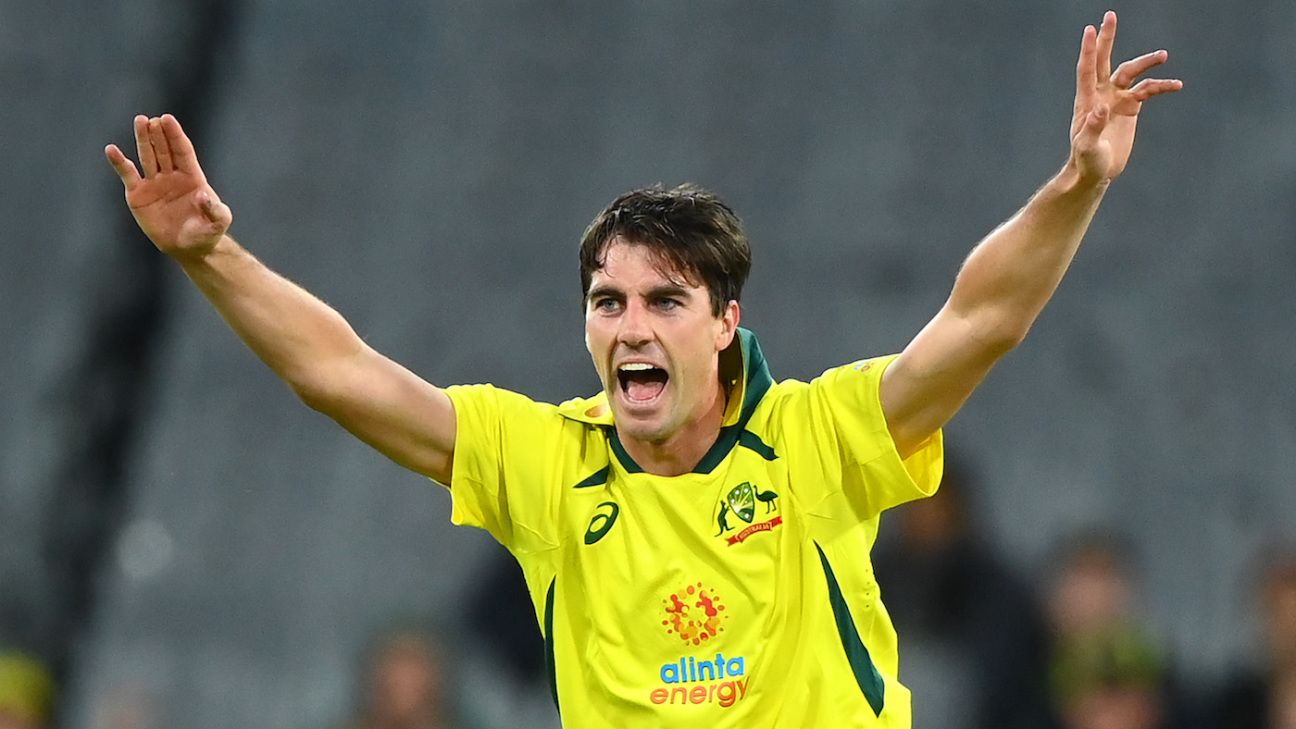
For the multi-format players involved in the Ashes there will be a three-week break after the final Test, but it won't be long before attention shifts to white-ball cricket.
A T20I and ODI tour of South Africa begins in late August, for which the squad is expected to be announced shortly after the final Test in England, with three one-dayers in India following off the back of that then straight into the World Cup.
Cummins was appointed ODI captain last October following the retirement of Aaron Finch. Since then Australia have only had six matches in the format, but Cummins has played just two of them. Josh Hazlewood stood in as captain for one game against England then Steven Smith did so for the series in India when Cummins was absent following the death of his mother.
With Cummins having a poor game at Old Trafford, as a bowler and a captain, questions have been raised about whether the workload is manageable, but he is comfortable about how the role will pan out over the next few months as the focus shifts formats.
"I know the selectors have been really clear that I'm a bowler first in that team," he said. "So if we need to manage some of those games leading into the World Cup that takes precedence over the continuity of being captain every single game.
"We'll manage that, but there's a great team around us of players and staff so while I'm the captain and it's a bigger workload it's manageable."
It was an outlook flagged by national selector George Bailey when Cummins was named captain. "In our one-day team, we do feel like we've got some strong leaders, some really experienced members of the team, and some developing leaders," Bailey said. "So regardless of Pat being there, I think we are moving away from this concept of a captain taking over and their leadership being all-encompassing."
It is expected that Cummins' ODI captaincy stint will only continue until the end of the World Cup with a potential that the selectors will look to unify the white-ball leadership under one person.
There has yet to be a successor named for Finch as T20 captain and it is possible that whoever leads the side for the three matches against South Africa is only an interim appointment before a permanent structure is put in place later in the year to lead into the 2024 T20 World Cup in West Indies and the USA.
Meanwhile, in Test cricket Cummins is approaching the two-year point of his captaincy and when he was announced in late 2021 he indicated he may not keep the role for as long as some. However, if he continues for another couple of years at least, it will likely coincide with the start of the regeneration of the side as senior players begin to retire with the chance a significant number could depart in swift succession.
"I certainly don't want to rush anyone out the door," he said. "I think this is about the fourth Ashes series where Jimmy Anderson says it's going to be his last one. You never know. It's just an age. Some of these guys might be around here in four years, and still at the top level. We'll see.
"It's always a conversation. In cricket, we're lucky you've got white-ball cricket where you can kind of have a soft entry for a lot of the guys, give them exposure to international cricket. It's something the selectors talk about, but really you try and pick your best XI each week."
A replacement for Warner will be the first significant order of business for the series against West Indies in mid-January unless the selectors decide to draw a line ahead of the three Tests against Pakistan starting in December.
"I've always said Matt Renshaw is a very good player," Warner said. "He can play both formats quite easily. He's tall. He's exactly like Haydos [Matt Hayden]. We spoke about him in the early part of his career.
"I've always felt and held him in high regard as a very good player. He's worked on his technique. He's been in and out of the squads, and I think he'll be a great replacement."
Andrew McGlashan is a deputy editor at ESPNcricinfo















 Phone: (800) 737. 6040
Phone: (800) 737. 6040 Fax: (800) 825 5558
Fax: (800) 825 5558 Website:
Website:  Email:
Email: 






